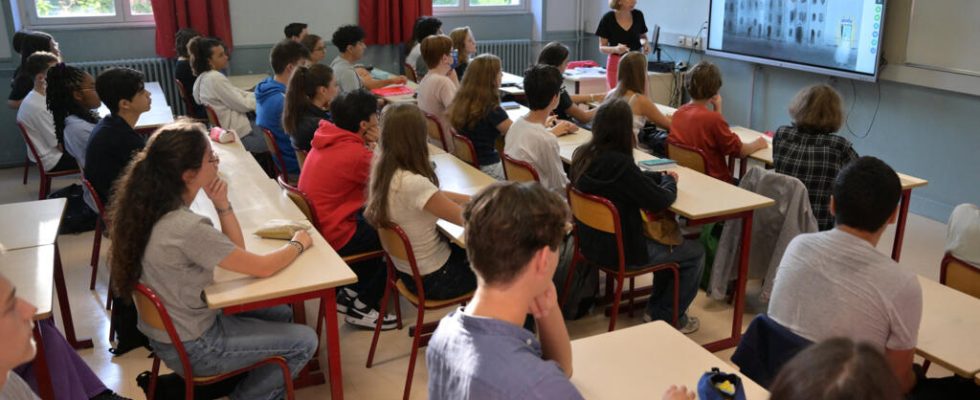In a report presented Tuesday, April 2, to the Committee on Cultural Affairs and Education at the National Assembly, two parliamentarians denounce a lack of transparency in the financing of private schools. It is an incriminating document, in which the two deputies are surprised that it is impossible to know the amount of funding paid to private schools, and what they do with this money.
3 mins
Opaque financing, underestimated spending, insufficient controls… the report undermines public financing of private education under contract, mainly Catholic, and proposes sanctions in the event of breaches, reports Agence France Presse.
The rapporteurs, LFI deputies Paul Vannier and Renaissance Christopher Weissberg, interviewed nearly 60 organizations (administrations, local authorities, networks of establishments, teachers, etc.) in order to evaluate the public funding allocated to private educational establishments, which educate 17% of students in France (2 million) and are financed “at least 75% by the public authorities”.
Public resources benefiting the sector amount to 9.04 billion euros in 2024, but “despite the sums at stake”, the allocation of this expenditure is “not very transparent”, “without a systematically defined and eminently political legal framework”. », they regret.
They point to a lack of “budgetary visibility” on the state spending side, particularly with regard to the remuneration of those accompanying students with disabilities, as well as a “lack of accounting clarity” on the local authority side.
Public spending devoted to private establishments (95% of which are Catholic) is “in any case underestimated”, add the parliamentarians. So much so that the funding model, which is based on an 80-20 ratio between public and private, is currently “more favorable to private establishments”, according to the report.
Insufficient controls
Another observation, “the frequency and depth of controls” are “very largely insufficient”. Last year, 5 establishments out of 1700 were inspected.
Budgetary controls are insufficient, according to the report which mentions association contracts with the State “tacitly renewed from year to year”, without verification. The document also points to “blind spots” in the educational control of establishments, in particular “the proper application of provisions relating to religious instruction”. “ This lack of control allows for fraud and mechanisms of misappropriation of public funds which call for a firm and rapid reaction from the State.insists MP Paul Vannier (LFI) joined by Loïc Duthoit from the French service of RFI.
Administrative controls are only based on “rare reports”, as for the Averroès Muslim high school in Lille where the Stanislas college in Paris, criticize the MPs who demand that the inspection reports be made public. “The compensation required from private establishments is far from being up to the level of funding, as evidenced by the deterioration of social and educational diversity,” add the two deputies.
Read alsoAverroès Muslim high school: justice confirms the end of public subsidies
Social diversity undermined
Private establishments contribute to widening inequalities between students from advantaged families and others. Currently, private institutions receive a lot of funding, but have very few obligations to fulfill. A situation that Paul Vannier regrets: “There is nothing said except the questions of social diversity, educational diversity, reception of children with disabilities, implementation of public health campaigns or quite simply the national educational policy…”
Also listenFrance: in Seine-Saint-Denis, teachers demand an emergency plan for education
To strengthen this diversity, Christopher Weissberg proposes making it compulsory to take into account the social positioning index (IPS) in the “resources allocation model”. Paul Vannier advocates “a penalty mechanism” to reduce allocations when this IPS is higher than that of public establishments in the same sector.
The report proposes to put in place a new document. It would detail a certain number of constraints for these establishments, in exchange for funding.
Also listenEducation: does France have the means to achieve its ambitions?
